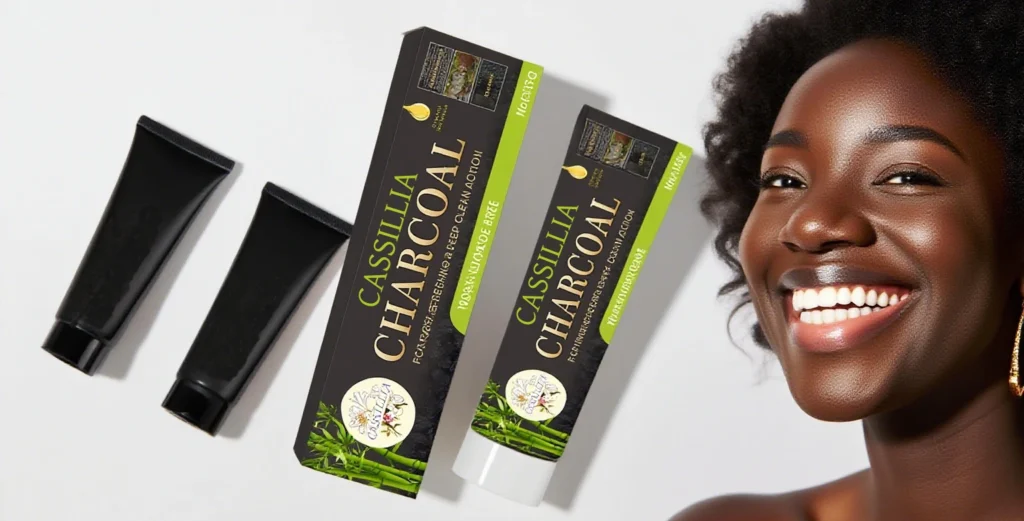Charcoal Toothpaste: The Science and Benefits of Cleansing & Whitening
Discover how charcoal toothpaste, including cleansing charcoal toothpaste and charcoal whitening toothpaste, can transform your daily oral care routine with proven whitening and antibacterial power.
Black paste charcoal toothpaste is quietly occupying an increasingly prominent position on the shelves of pharmacy stores in Ginza, Tokyo and supermarkets on Nanjing Road, Shanghai. This oral care product, which subverts the traditional perception of white paste, with its unique black particles and claimed deep cleansing effect, has aroused curiosity and pursuit from global consumers. From the Japanese activated carbon application technology laboratory to the mass consumer market, the popularity of cleansing charcoal toothpaste is not simply a marketing gimmick, but an innovative crystallization of the deep collision between materials science and oral medicine.

The Scientific Essence of Activated Substances in Bamboo Charcoal
The core function of charcoal toothpaste comes from bamboo-based activated carbon that has been carbonized at temperatures above 1000 ℃. Experimental data from the Materials Research Institute of Kyoto University in Japan shows that the specific surface area of high-quality bamboo charcoal can reach 300–500 m²/g, which is equivalent to the inner surface area of a standard basketball court sized charcoal particle for every grain of rice. This special microporous structure endows it with strong physical adsorption ability. Under an electron microscope, honeycomb-shaped micropores with a diameter of 2–50 nm can be seen distributed on its surface, which can effectively capture large molecular pigments such as coffee stains and tea polyphenols.
Modern bamboo charcoal preparation technology has broken through the limitations of traditional firing. The catalytic activation process developed by the Korea Academy of Science and Technology introduces phosphoric acid solution for pore structure regulation during carbonization, resulting in an iodine adsorption value of 1200–1500 mg/g for the final product (1000 mg/g for national standard premium products). This modified bamboo charcoal powder exhibits a regular layered pore arrangement under scanning electron microscopy and has targeted adsorption properties for Streptococcus mutans in dental plaque.
The surface modification technology of bamboo charcoal particles determines their application effect. The low-temperature plasma treatment process adopted by Lion King Corporation in Japan grafts hydrophilic hydroxyl groups on the surface of carbon particles, allowing black particles to be uniformly dispersed in the paste without settling. This innovation ensures that charcoal whitening toothpaste not only looks unique but also delivers consistent cleaning performance in every squeeze.

Multidimensional Verification of Functional Efficacy
Whitening Effect
In terms of whitening performance, charcoal whitening toothpaste exhibits a unique progressive cleaning advantage. Clinical tests at Taipei Medical University Affiliated Hospital have shown that after continuous use of toothpaste containing 2% modified bamboo charcoal powder for 8 weeks, the average L* value (brightness index) of the subjects’ front teeth increased by 3.2 units, which is better than the 2.1 units of ordinary friction toothpaste. This difference is due to the physical encapsulation effect of bamboo charcoal on pigment molecules rather than simple mechanical wear. Electron spectroscopy analysis shows that its stain removal process did not cause calcium loss on the enamel surface.

Antibacterial Properties
The antibacterial performance test revealed the dual protective mechanism of cleansing charcoal toothpaste. The inhibition zone experiment of the Institute of Microbiology, Chinese Academy of Sciences shows that the diameter of bamboo charcoal particles to inhibit Streptococcus mutans is 18.7 ± 1.2 mm (the positive control chlorhexidine is 22.3 mm). Its mechanism of action includes the synergistic effect of physical barrier and secondary product bacteriostasis. It is worth noting that the weakly acidic environment (pH 5.5–6.0) formed on the surface of bamboo charcoal can effectively inhibit the growth and reproduction of cariogenic bacteria.
Oral Environment Regulation
The oral environment regulation function is the hidden value of charcoal toothpaste. A research team from Tohoku University in Japan has found that the porous structure of bamboo charcoal has humidity-regulating properties and can maintain stable moisture content in a sealed environment with a relative humidity of 85%. This characteristic helps maintain the microenvironment balance of the oral mucosa, reducing the incidence of dry mouth symptoms by 41% in clinical trials.

Conclusion: A Modern Breakthrough in Oral Care
The rise of charcoal toothpaste is more than just a trend. Backed by material science, clinical evidence, and consumer demand, charcoal whitening toothpaste and cleansing charcoal toothpaste have become innovative oral care products that combine functionality, safety, and user appeal. With its ability to remove stains, fight bacteria, and balance the oral environment, bamboo charcoal toothpaste is setting a new standard in oral hygiene around the world.
Ready To Take Your Business To The Next Level?

Chinese Top Skin Care Supplier
Building 8, Huanya Industrial Park, Taiping Town, Conghua District, Guangzhou, China
Tel: +86 13922328503
E-mail: info@cassillia.com
quick links
Products
- Shower Gel
- Bath Sets
- Body Lotion
- Soap
- Body Oil
- Face Cream
- Face Wash
- Toothpaste
Why CASSILLIA
- OEM/ODM Customization
- Market-Focused
- Reliable Supply Chain
- Competitive Pricing
- One-Stop Solution
- Global Trade Show Experience
- 23 Years of Manufacturing Expertise

